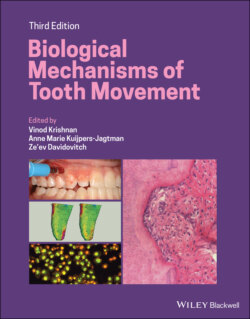Читать книгу Biological Mechanisms of Tooth Movement - Группа авторов - Страница 60
Cytokines
ОглавлениеCytokines are proteins that act as signals between the cells of the immune system. These molecules are produced during the activation of immune cells and usually act locally, although some act systemically with overlapping functions. Depending on the major outcomes driven by different cytokines, they can be didactically grouped into subfamilies such as interleukins (the broader group comprising pleiotropic cytokines initially nominated as the mediators of the communication “between leukocytes”), TNF superfamily (comprising TNF‐α and the RANK/RANKL/OPG [receptor activator of nuclear factor kappa B ligand/osteoprotegerin] system, the major regulators of the osteoclastogenesis process), chemokines (cytokines with primary chemotactic function), and growth factors (cytokines having prominent actions in proliferative and differentiation processes).
Previous studies have implicated the involvement of different classes of cytokines in bone remodeling in vitro and in vivo. These cytokines are considered as key mediators involved in a variety of immune and acute‐phase inflammatory response activities. The role of the immune system in the regulation of bone remodeling through cytokine production by inflammatory cells that have migrated from dilated PDL capillaries after the application of orthodontic forces is well established (Davidovitch et al., 1988).
